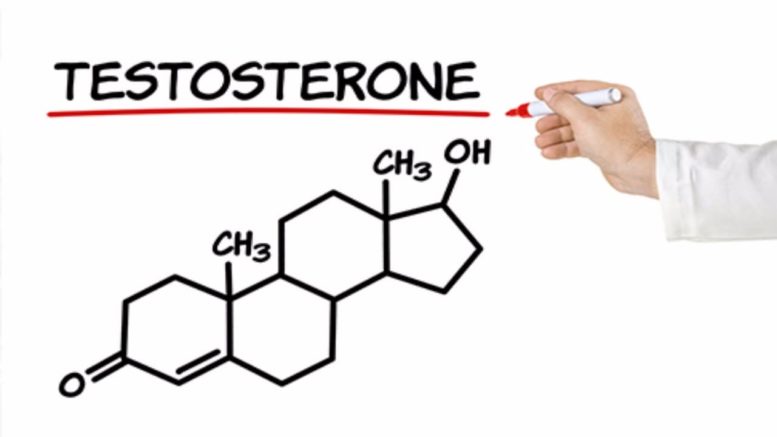Steroids refer to a large class of organic compounds that constitute vitamins and hormones. It is a universal term used in discussions about bodybuilding, fitness, and health today. The use of steroids for various purposes, including muscle building and medical applications, has gained interest in recent times.
They are available in different forms, such as injectables or oral intake. The growing market for steroids has also raised a few health concerns relating to abuse and the many problems. Here are five things you need to know about steroids and their effect on health.
1. Difference between Anabolic Steroids and Corticosteroids
Anabolic steroids are dominantly used by athletes such as weightlifters, bodybuilders to boost testosterone levels in the body. The purpose of steroids Canada is for muscle growth as the compound supports protein synthesis. These steroids are majorly synthetic versions of the testosterone hormone that aid in muscle building in the body. They are performance-enhancing compounds that vigorously promote muscle growth and development.
On the other hand, corticosteroids find applications as a treatment for alleviating the functions of an overactive immune system. The problem could lead to autoimmune conditions such as arthritis and psoriasis, where chronic inflammation and swelling occurs. Cortisone is a synthetic version of cortisol that aids in curbing chronic inflammatory conditions.
2. Anabolic Steroids Can Affect the Brain
Anabolic steroids are among the most commonly abused substances for manipulating physical growth among men and women. The effects of using anabolic steroids without a proper recommendation from a practitioner can have an intense effect on the brain.
While the effect of steroids in the body is nothing like that of drugs that trigger an increase of dopamine, long term use of the compounds can affect the brain’s chemical pathways. Overuse of the substance could lead to an imbalance of hormones in the body that can trigger frequent mood swings and depressive disorders.
Studies suggest that long term use of anabolic steroids can lead to aggressive behaviors, irritability, impaired judgment, violent response, and even paranoia. It can also increase the chances of delusion or the risk of developing mental health disorders. The imbalance of chemicals in the brain can impair several critical functions in the human body.
3. Steroids Could Lead To Addiction
The interaction of steroids with the human body is different from that of drugs. But the reinforcing properties of the compounds increases the chance of developing a dependency. Users who utilize steroids tend to see visible results within a few doses that acts as a positive reinforcement to use more of it. Also, the body starts to feel different in the absence of steroids, which might feel abnormal after long-term use. Studies with animal models indicate that individuals can develop an addiction while self-administering steroids like drugs when given the opportunity.
Individuals with steroid dependency may experience severe withdrawal symptoms when they decide to stop, such as severe insomnia, loss of appetite, a rapid loss of weight, reduced sex drive, and an intense physical and psychological craving for the substance. Some may also turn to harsh drugs such as opioids to counter the withdrawal effects of steroids.
4. Side Effects
The purpose of anabolic steroids is to increase androgens levels in the body that can create a lot of unexpected side effects. Steroid abuse could have dangerous consequences such as impairment of kidney function, liver damage, or increased cardiovascular problems because of elevated blood pressure. These compounds can also increase the risk of suffering from stroke or heart attack.
Apart from these chronic problems, the use of steroids can initiate many side effects as well. Reduced sperm count, sex drive, development of breasts, and increased risk of prostate cancer are common among men. In women, acne, growth of facial hair, baldness, problems in the menstruation cycle, and deepening of the voice are commonly observed side effects.
The use of steroids among adolescents can have an intense impact on the growth as it might hinder changes common during puberty. It can also influence reproductive health and increase the risk of contracting hepatitis when used in injectable form.
5. Steroids Affect Nutrition
Most steroids have an intense effect on nutrition available in the body. Whether they are intended to boost testosterone or curb inflammation and swelling, they interfere with nutrition pathways that can affect overall health. Steroid therapy or long term use of the compound tends to increase appetite. It could increase cravings for calorie-rich food that could lead to rapid weight gain.
They also interfere with the absorption and utilization of essential nutrients in the body, such as potassium, calcium, vitamin C, vitamin D, sodium, and proteins. It could lead to brittle and fragile bones, affect blood pressure, cause excess fatigue. Hence a well-balanced diet is very crucial to cope with the many effects of steroid usage.
Conclusion
It is essential to understand the long term impact of steroids before you consider using it. Also, the high risk of abuse that could lead to chronic health conditions indicates that it is best to use it only with a prescription. Make sure to reach out for help from professionals if you are suffering from addiction or withdrawal of steroids.
